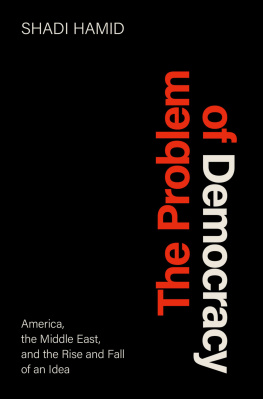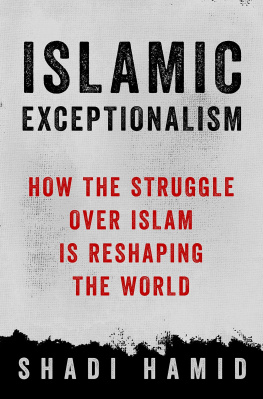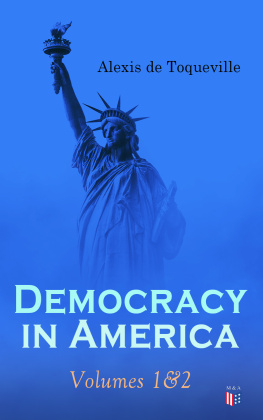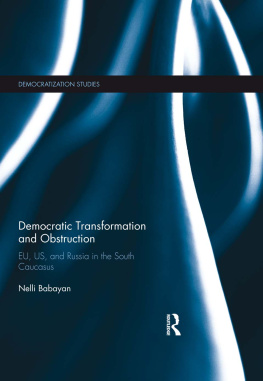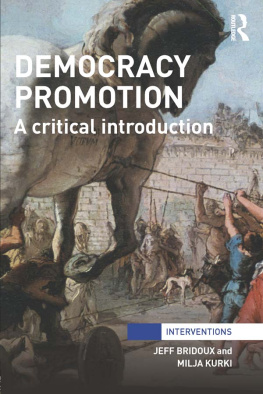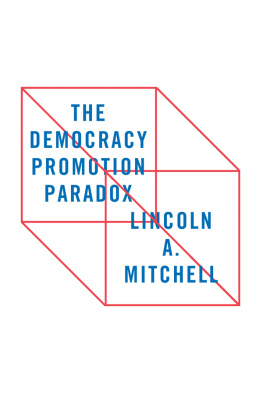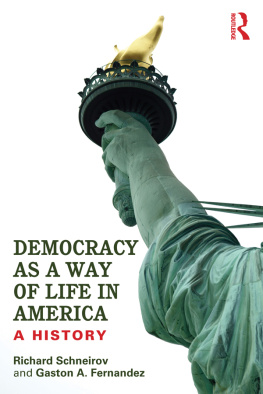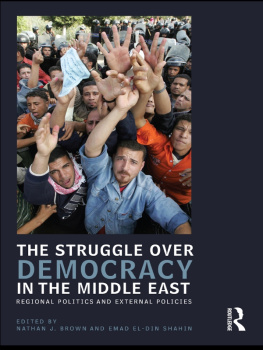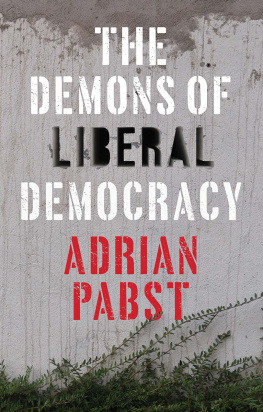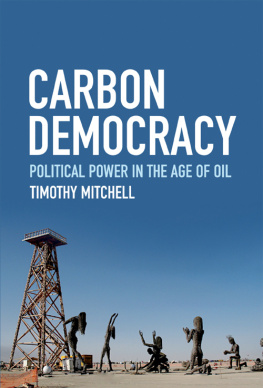Shadi Hamid - The Problem of Democracy: America, the Middle East, and the Rise and Fall of an Idea
Here you can read online Shadi Hamid - The Problem of Democracy: America, the Middle East, and the Rise and Fall of an Idea full text of the book (entire story) in english for free. Download pdf and epub, get meaning, cover and reviews about this ebook. City: New York, year: 2022, publisher: Oxford University Press, genre: Science / Politics. Description of the work, (preface) as well as reviews are available. Best literature library LitArk.com created for fans of good reading and offers a wide selection of genres:
Romance novel
Science fiction
Adventure
Detective
Science
History
Home and family
Prose
Art
Politics
Computer
Non-fiction
Religion
Business
Children
Humor
Choose a favorite category and find really read worthwhile books. Enjoy immersion in the world of imagination, feel the emotions of the characters or learn something new for yourself, make an fascinating discovery.
- Book:The Problem of Democracy: America, the Middle East, and the Rise and Fall of an Idea
- Author:
- Publisher:Oxford University Press
- Genre:
- Year:2022
- City:New York
- Rating:5 / 5
- Favourites:Add to favourites
- Your mark:
The Problem of Democracy: America, the Middle East, and the Rise and Fall of an Idea: summary, description and annotation
We offer to read an annotation, description, summary or preface (depends on what the author of the book "The Problem of Democracy: America, the Middle East, and the Rise and Fall of an Idea" wrote himself). If you haven't found the necessary information about the book — write in the comments, we will try to find it.
What happens when democracy produces bad outcomes? Is democracy good because of its outcomes or despite them? This democratic dilemma is one of the most persistent, vexing problems for America abroad, particularly in the Middle East--we want democracy in theory but not necessarily in practice.
When Islamist parties rise to power through free elections, the United States has too often been ambivalent or opposed, preferring instead pliable dictators. With this legacy of democratic disrespect in mind, and drawing on new interviews with top American officials, Shadi Hamid explores universal questions of morality, power, and hypocrisy. Why has the United States failed so completely to live up to its own stated ideals in the Arab world? And is it possible for it to change?
In The Problem of Democracy, Hamid offers an ambitious reimagining of this ongoing debate and argues for democratic minimalism as a path to resolving democratic dilemmas in the Middle East and beyond. In the seemingly eternal tension between democracy and liberalism, recognized by the ancient Greeks and the American founders alike, it may be time to prioritize one over the other, rather than acting as if the two are intertwined when increasingly they are not.
At the end of the Cold War, the democratic idea was victorious, so much so that it took on more meaning than it could bear. Democracy became a means to other ends, whether it was liberalism, economic development, or cultural progress. What if, instead, democracy was reconceptualized as its own end? What if the people are right even when theyre wrong?
The problem of democracy is no longer just a Middle Eastern problem. The polarizing effects of identity, culture, and religion are now haunting the worlds oldest democracies. At home, a growing number of Americans are realizing that respecting election results when the other side wins is easier said than done. To look then at the democratic dilemma abroad is to consider a deeper set of questions around why we believe democracy is good as well as whether we think it is good for other nations and cultures.
Shadi Hamid: author's other books
Who wrote The Problem of Democracy: America, the Middle East, and the Rise and Fall of an Idea? Find out the surname, the name of the author of the book and a list of all author's works by series.

